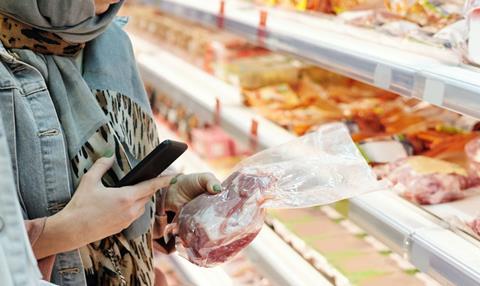Food inflation has hit its lowest level since December 2022 as rate of inflation continues to slow each month.

In the first week of July, inflation rates continued to decelerate:
- Food inflation decelerated to 13.4%, down from 14.6% in June
- Fresh food inflation slowed to 14.2%, down from 15.7% in June
- Ambient food inflation decelerated to 12.3%, down from 13% in June
- Annual shop price inflation decelerated to 7.6%, down from 8.4% in June
Rates continue to decelerate
Mike Watkins, head of retailer and business insight, NielsenIQ, said: "The summer holiday period should help discretionary spend a little and whilst inflation remains high, the outlook is improving. Shoppers continue to change how they shop as part of their coping strategies. This includes shopping at different retailers, buying lower priced items, delaying spend or only buying when there are promotions. This behaviour looks set to continue."
"Further supply chain issues may add to input costs for retailers in the months ahead."
Helen Dickinson
Helen Dickinson, OBE, chief executive of the British Retail Consortium, said: "Shop price inflation fell to its lowest level of 2023 and, for the first time in two years, prices fell compared to the previous month.
"Food price inflation also slowed to its lowest level this year, with falling prices across key staples such as oils, fats, fish, and breakfast cereals.
"These figures give cause for optimism, but further supply chain issues may add to input costs for retailers in the months ahead. Russia’s withdrawal from the Black Sea Grain Initiative and subsequent targeting of Ukrainian grain facilities, as well as rice export restrictions from India are dark clouds on the horizon. We expect some global commodity prices to rise again as a result, and food prices will be slower to fall. Retailers continue working hard to keep falling prices on track.
"Government must also play its part and freeze business rates from next April, or else risk adding a £400m additional pressure on prices."
This story was originally published on a previous version of the Meat Management website and so there may be some missing images and formatting issues.












